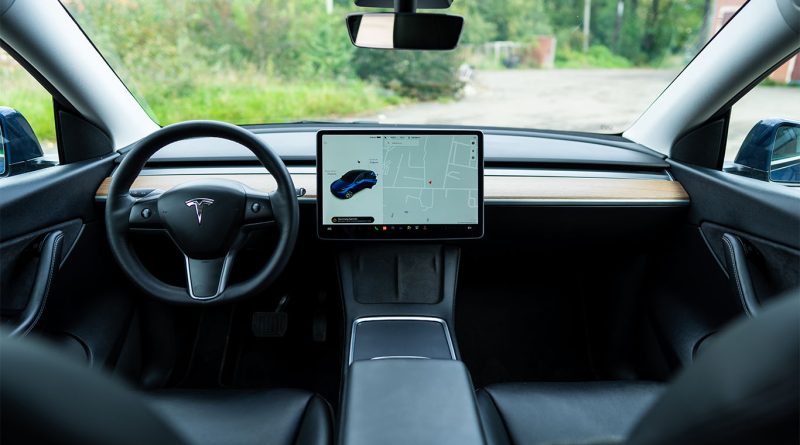Tesla’s self-driving claims spark legal fight in California
Subscribe to our free newsletter today to keep up to date with the latest transportation and logistics news.
Tesla is facing one of its most serious regulatory challenges to date. The California Department of Motor Vehicles has formally accused the company of misleading consumers through its use of the terms “Autopilot” and “Full Self-Driving,” and is seeking to suspend Tesla’s license to sell and manufacture vehicles in the state. The case, now before the state’s Office of Administrative Hearings, centers on whether Tesla’s marketing implies that its driver-assistance systems are fully autonomous, a claim regulators say is inaccurate.
The legal complaint, originally filed in 2022, has advanced steadily, with hearings gaining traction in 2025. California officials argue that Tesla’s branding leads consumers to believe human oversight is optional, despite federal classifications placing Tesla’s systems at Level 2 automation. That designation means the vehicle can assist with steering and acceleration, but an attentive driver is still required.
Tesla, which dominates electric vehicle sales in California, could lose access to its largest US market if the DMV prevails. The agency also wants Tesla to provide customer restitution and implement stricter disclaimers across its materials.
Tesla’s defense rests on warnings and driver supervision requirements
Tesla contends it has consistently advised drivers to remain attentive, with prompts, manuals, and system alerts reinforcing that Autopilot and Full Self-Driving are not autonomous. It argues that terms like “Autopilot” are not misleading when taken in context, especially since aviation has long used the word to describe assistive, not independent, control.
Company representatives have pointed to software messaging and repeated in-car warnings requiring drivers to keep their hands on the wheel. Elon Musk’s prior statements acknowledge that the systems require supervision, even as he promotes the potential for future autonomy.
Tesla maintains that its language, combined with visual cues in marketing and disclaimers, makes the system’s limitations clear. California regulators disagree, citing videos and comments that appear to contradict these caveats. Central to the case is whether consumer understanding matches the reality of what Tesla offers, and whether Tesla is accountable for shaping those perceptions.
A fatal Florida crash adds pressure to Tesla’s legal exposure
While Tesla contests the DMV case, it is also defending itself in a Florida federal courtroom. A civil jury is considering claims tied to a 2019 fatal crash in Key Largo, where a Model 3 operating on Autopilot struck and killed 22-year-old Naibel Benavides Leon. Her partner was seriously injured.
The driver, George McGee, testified that he took his eyes off the road to retrieve a dropped phone, assuming the car would stay in its lane. Tesla says the incident resulted from driver distraction, not a malfunction, and that system warnings had been ignored.
Plaintiffs argue that Tesla’s marketing and the system’s interface created an unsafe sense of reliability. The trial, one of the first involving a Tesla fatality and a jury, could shape how liability is assessed in future Autopilot-related accidents. Jurors are being asked to weigh whether Tesla’s branding contributed to the misuse of its technology.
Statistics show a rise in accidents involving driver-assist systems
Federal data has fueled concerns about the risks of overreliance on driver-assist features. The National Highway Traffic Safety Administration has linked Tesla’s Autopilot to hundreds of collisions, including at least 13 fatal incidents.
A 2024 MIT study showed that driver attention tends to decline when Autopilot is engaged, with operators taking longer to respond to road hazards. These findings align with prior National Transportation Safety Board reports, which have called Tesla’s monitoring capabilities inadequate and warned that public beta testing poses added risks.
Critics say the technology can be beneficial when used responsibly, but argue that Tesla’s branding invites confusion. The ongoing rollout of Full Self-Driving Beta, offered to regular users without additional vetting, has attracted scrutiny from lawmakers and safety groups.
How this case could set precedent for regulating advanced driver tech
If California succeeds in suspending Tesla’s license, it would represent one of the strongest state-level actions ever taken against a major automaker over marketing practices. Other companies offering similar systems, including Ford’s BlueCruise and GM’s Super Cruise, have taken a more conservative approach in naming and promoting their technologies.
The outcome may also influence federal regulators, who have yet to impose penalties on Tesla despite years of investigations. A ruling in California’s favor could prompt a shift in how advanced driver-assist features are described and regulated nationwide. As pressure mounts, the industry faces a broader question: should language surrounding automation be left to companies, or defined by public standards?
Sources:
